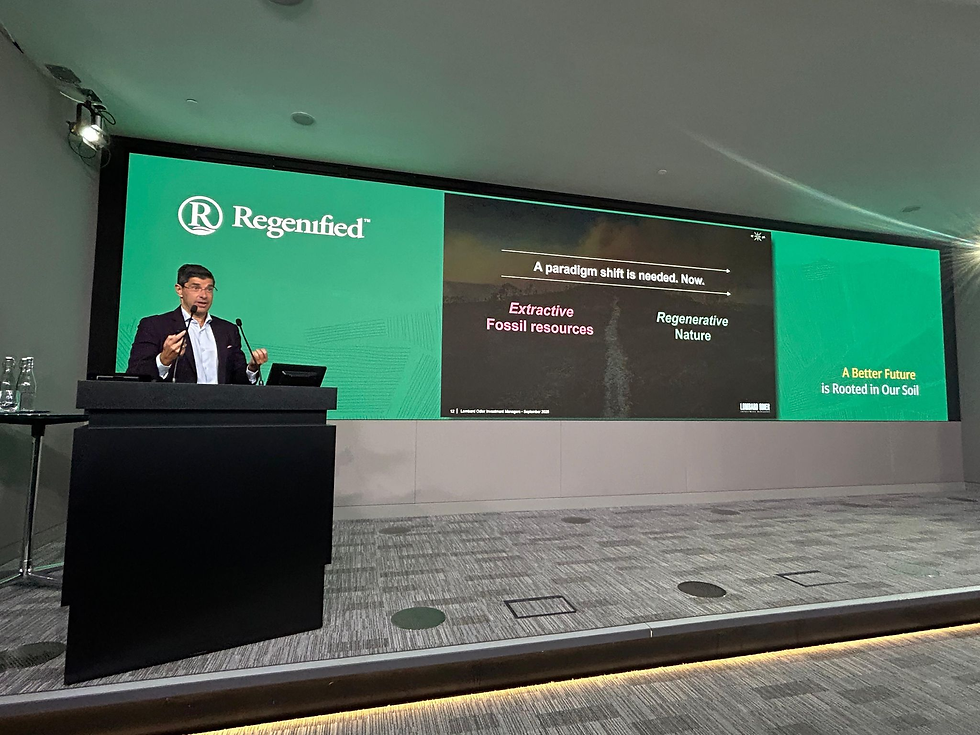Agriculture in Action: Knowledge, Collaboration, and Justice Across the SAN Network (October 6–12, 2025)
- Communications

- Oct 13, 2025
- 4 min read
Across the SAN Network this week, members demonstrated the power of collaboration in addressing some of agriculture’s most pressing challenges — from biodiversity loss and pest resilience to youth leadership, gender equity, and certification integrity. Through innovation and partnership, the network continues to prove that agriculture can heal, nourish, and sustain both people and the planet.
Nature-Based Innovation and Resilient Farming Systems
A wave of innovation swept across member platforms this week, showcasing nature-positive science in action.

CABI led a series of posts on integrated pest management (IPM) and biological control, reinforcing how microbial biopesticides, beneficial insects, and knowledge-sharing can reduce pesticide dependency and boost ecosystem health. Their coverage of banana and avocado pest management and papaya mealybug control highlighted the practical applications of agroecology. CABI also connected scientific insights to farmer empowerment, celebrating Pakistan’s cotton producers during World Cotton Day for improving quality and income through sustainable practices.
Meanwhile, RAAA Perú contributed to the same theme from a grassroots angle — advancing biodiversity conservation through flowering crops, beekeeping education, and university-led agroecological training. Their focus on biol and biosol production at HECOSAN emphasized how small-scale innovations enhance soil health and crop resilience.
Together, these efforts demonstrate how SAN Members are embedding ecological intelligence into everyday agricultural practice — transforming both landscapes and livelihoods.
Youth, Knowledge Sharing, and South–South Collaboration
Across Africa, members are strengthening the next generation of agricultural innovators.
CORAF took center stage at the MITA 2024 Summit in Lomé, where hundreds of young entrepreneurs, researchers, and investors gathered to exchange ideas on transforming agriculture through technology and innovation. The organization also participated in Invest in Senegal 2025, advancing a dialogue on agri-tech entrepreneurship and regional investment. Complementing these engagements, CORAF launched four practical guides to accelerate the adoption of agricultural innovations across West and Central Africa.

At the same time, PELUM Uganda announced its upcoming #AgroecologyWeekAction2025 and marked 30 years of impact, highlighting youth participation, indigenous food knowledge, and community-led policy action.
Across both organizations, youth leadership and regional collaboration emerged as essential engines of agroecological transformation — ensuring that innovation remains inclusive, local, and scalable.
Equity and Inclusion at the Heart of Conservation
Social equity continues to be a cornerstone of sustainability across SAN’s network.
Fundación Natura Colombia represented the voice of Latin America at the IUCN World Conservation Congress, spotlighting women’s leadership, gender equity, and inclusion in conservation dialogues. Their presence underscored how gender justice and biodiversity protection are interlinked — and how equitable participation strengthens conservation outcomes.
MELCA Ethiopia similarly emphasized inclusion through the completion of its Bale Project, a four-year initiative designed to build eco-friendly livelihoods and enhance community resilience to climate change.

Together, these initiatives reflect SAN Members’ shared belief: that environmental progress is inseparable from social justice and community empowerment.
Accountability and Credibility in Sustainability Systems
Integrity took center stage this week as members addressed governance within sustainability certification systems.
Preferred by Nature led a transparent and forward-looking dialogue on the Forest Stewardship Council (FSC), publishing reflections on the system’s credibility and the reforms needed to restore trust. Beyond advocacy, the organization also continued to deliver practical training — from ecosystem restoration and nature-based solutions in Spain to preparations for the Sustainable Rice Forum in Indonesia.
In parallel, CottonConnect, CABI, and REEDS Pakistan used World Cotton Day to reaffirm their commitment to traceability, farmer inclusion, and regenerative production. Through global events, farmer stories, and field gatherings across Pakistan, they highlighted cotton as both a climate crop and a pathway to dignity for rural communities.
Across these efforts, members are modeling the balance between credibility, transparency, and impact that underpins SAN’s mission to transform agriculture from within.
Climate Action Through Partnership and Innovation
Climate innovation remained a strong thread across SAN members’ work this week.
The Circular Bioeconomy Alliance brought this message to the financial sector when CEO Marc Palahí delivered a keynote at the Regenerative Capital Market Day at the London Stock Exchange, calling for a nature-powered economic transition.

The Rainforest Alliance likewise showcased how partnership fuels innovation — from worker-led human rights due diligence in India and Mexico to sustainable coffee practices in Chiapas. Their collaboration with Savor, transforming captured carbon into sustainable cooking fats, demonstrated how climate solutions can also reimagine food systems.
These examples reflect how SAN Members are pushing beyond adaptation toward true regeneration — aligning finance, technology, and human rights with climate-smart agriculture.
Knowledge, Connection, and the Power of Collective Action
Whether improving soil fertility in Indonesia, advancing youth-led agroecology in Africa, or reimagining supply chains for global commodities, this week reaffirmed a central truth of the SAN Network: transformation is collective.
Our members are proving, once again, that sustainability thrives where knowledge is shared, equity is centered, and nature is restored.
Together, they continue to turn agricultural systems into living ecosystems of collaboration, justice, and hope.




Comments